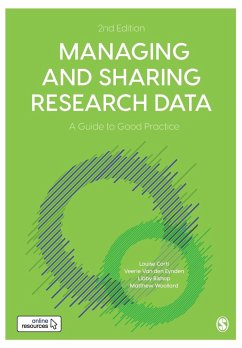
Predatory Practices in Scholarly Publishing and Knowledge Sharing
Causes and Implications for Scholarship
Herausgegeben: Habibie, Pejman; Fazel, Ismaeil
Versandkostenfrei!
Versandfertig in 6-10 Tagen
37,99 €
inkl. MwSt.

PAYBACK Punkte
19 °P sammeln!
This volume offers comprehensive examination of "predatory" practices in scholarly publishing, and highlights emergent issues around predatory journals, Open Access (OA), and scam conferences.Chapters engage multiple methodologies, including corpus, discourse, and genre analysis, as well as historical and autoethnographic approaches to offer in-depth, empirical analyses of the causes, practices, and implications of predatory practices for scholars. Contributors span a broad range of disciplines and geolocations, presenting a diverse range of perspectives. The volume also outlines effective ini...
This volume offers comprehensive examination of "predatory" practices in scholarly publishing, and highlights emergent issues around predatory journals, Open Access (OA), and scam conferences.
Chapters engage multiple methodologies, including corpus, discourse, and genre analysis, as well as historical and autoethnographic approaches to offer in-depth, empirical analyses of the causes, practices, and implications of predatory practices for scholars. Contributors span a broad range of disciplines and geolocations, presenting a diverse range of perspectives. The volume also outlines effective initiatives for the identification of predatory practices and considers steps to increase understanding of viable publishing options.
Providing a needed exploration of predatory research practices, this book will appeal to scholars and researchers with interests in higher education, publishing, and communication ethics.
Chapters engage multiple methodologies, including corpus, discourse, and genre analysis, as well as historical and autoethnographic approaches to offer in-depth, empirical analyses of the causes, practices, and implications of predatory practices for scholars. Contributors span a broad range of disciplines and geolocations, presenting a diverse range of perspectives. The volume also outlines effective initiatives for the identification of predatory practices and considers steps to increase understanding of viable publishing options.
Providing a needed exploration of predatory research practices, this book will appeal to scholars and researchers with interests in higher education, publishing, and communication ethics.














